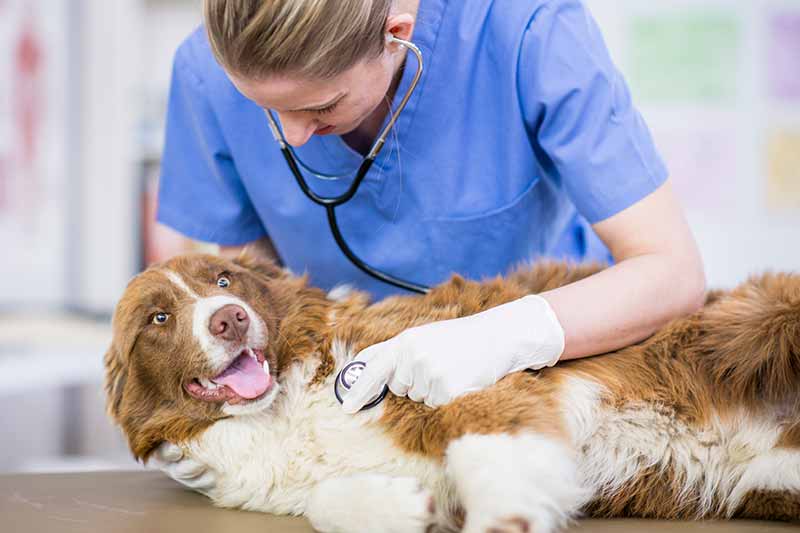Inoculation Standards From Your Trusted Veterinarian
Inoculation standards provided by your trusted vet play a critical role in securing your family pet's wellness and well-being. In addition, dealing with typical misconceptions surrounding vaccinations can better enhance family pet owners' confidence in these preventive steps.

Relevance of Vaccinations
Inoculations play a crucial duty in securing pet dogs versus a range of avoidable diseases. By promoting the body immune system to acknowledge and deal with specific microorganisms, vaccines considerably lower the incidence of infectious diseases that can affect a pet's health and longevity. Not just do vaccinations secure specific animals, yet they likewise contribute to herd resistance, thereby decreasing the general frequency of diseases in the pet dog population.
Timely inoculations help to alleviate the spread of conditions such as rabies, parvovirus, and distemper, which can have severe effects for both animals and humans. Furthermore, vaccinations are frequently a requirement for boarding facilities, grooming services, and pet parks, making them necessary for those that want to mingle their family pets.

Core Vaccinations for Family Pets
While the specific inoculation needs of pet dogs can differ based upon individual elements, core vaccinations are widely suggested to safeguard against the most typical and major illness (Veterinarian Enterprise). Core vaccines are those considered essential for all pet dogs, regardless of their way of living or geographic area, as they guard versus very contagious and possibly deadly diseases
For pet dogs, the core injections include those for canine distemper, parvovirus, adenovirus (liver disease), and rabies. Canine distemper is a viral condition that influences the respiratory, intestinal, and nerve systems. Parvovirus is known for triggering extreme stomach health problem, especially in young puppies. Adenovirus can lead to liver illness, while rabies is a zoonotic illness that presents a danger to both people and animals.
In felines, core vaccinations incorporate feline panleukopenia, feline calicivirus, feline herpesvirus (rhinotracheitis), and rabies. Feline panleukopenia is an extremely contagious viral disease that affects the body immune system and intestines. Calicivirus and herpesvirus are significant contributors to top breathing infections in pet cats, while rabies continues to be an important concern for public wellness.
Speak with your vet to ensure your animals receive their core inoculations on time.
Non-Core Vaccines Explained
Non-core vaccines are tailored to resolve specific threats connected with a family pet's way of life, setting, and direct exposure to specific illness. Unlike core vaccinations, which are generally advised for all pets, non-core injections are thought about based upon specific conditions. These vaccinations are especially vital for pets that may encounter distinct pathogens due to their geographical place, traveling practices, or tasks.
Instances of non-core injections include those for Bordetella bronchiseptica, which is connected to kennel cough, and Lyme disease, triggered by ticks. Animals that frequently connect with various other pets, such as those in boarding centers, dog parks, or brushing settings, might gain from Bordetella inoculation. Likewise, if you reside in an area where Lyme disease prevails, immunizing versus this illness can be a sensible selection for outdoor-loving dogs.
Various other non-core vaccinations may consist of those for leptospirosis, canine flu, and feline leukemia, relying on the specific threat elements present. It is important to have a thorough conversation with your veterinarian regarding your animal's lifestyle and the possible need for these injections, making certain a customized inoculation technique that finest secures your furry pal.
Inoculation Set Up Summary

As pets develop, it is important to follow the recommended booster inoculations. Pet Vaccinations. For grown-up animals, core vaccinations are commonly offered every one to three years, depending on the specific vaccination and local policies. Non-core injections might be advised based on lifestyle factors and regional condition occurrence, demanding a tailored method
Normal veterinary check-ups are crucial for updating inoculation timetables. Your veterinarian can give support on the most ideal immunizations for your pet, considering age, health condition, and ecological threats. By staying proactive and notified, pet dog owners can ensure their hairy companions receive reliable and prompt vaccinations, thereby protecting their wellness and health throughout their lives.
Common Misconceptions Concerning Vaccines
Misconceptions about pet inoculations can result in complication and unwillingness amongst animal proprietors regarding the immunization procedure. One prevalent myth is that vaccinations are unnecessary for indoor pet dogs. While it's true that interior pet dogs face lower threats, they are not completely immune to illness, as microorganisms can be presented through various methods, consisting of human apparel and other pets.
One more false impression is that vaccines can cause the illness they intend to protect against. In reality, many injections have inactivated or undermined virus, which can not cause disease in healthy animals. Some family pet owners additionally believe that their animals need to not be vaccinated if they are already healthy and balanced; nonetheless, inoculations are a positive action that assists prevent the onset of ailment.
In addition, lots of family pet owners are afraid that injections will lead to long-term wellness issues. The benefits of inoculation-- securing pets from possibly lethal illness-- much exceed the risks.
Verdict
In summary, adherence to vaccination standards is essential for making certain the health and wellness and longevity of pet dogs. Core vaccinations offer important defense against serious conditions, while non-core vaccinations resolve certain threats based upon individual lifestyles. Developing a thorough inoculation timetable, in combination with regular vet exams, promotes optimal health monitoring. Resolving usual misconceptions bordering inoculations even more enhances the significance of informed decision-making in pet care. Eventually, a proactive method to vaccinations is essential for click for more info maintaining family pet well-being.
Not only do vaccinations secure private animals, but they likewise add to herd resistance, therefore reducing the general frequency of diseases in the pet population.
False impressions about pet vaccinations can lead to confusion and reluctance among animal owners concerning the immunization procedure. While it's true that indoor pet dogs encounter reduced risks, they are not completely immune to illness, as pathogens can be click site presented with different methods, including human apparel and other animals.
Some animal proprietors also believe that their family pets must not be immunized if they are currently healthy and balanced; nevertheless, inoculations are an aggressive procedure that helps prevent the onset of illness.
The benefits of vaccination-- safeguarding animals from potentially lethal illness-- far exceed the threats.